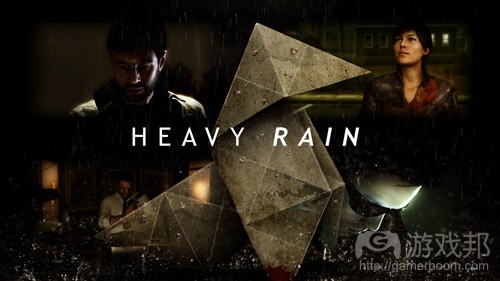David Cage指出游戏产业需要做出的种种改变
作者:Dean Takahashi
David Cage指责游戏产业中一直在出现各种类似的游戏,并催促游戏产业能够进一步发展。
作为电影类游戏开发商Quantic Dream(游戏邦注:创造了像《幻象杀手?以及《暴雨》等游戏)的首席执行官,Cage正致力于创造《超越:两个灵魂》——在去年的E3游戏展会上广受好评。在DICE峰会上,Cage谈及了“彼得潘综合症”,或者说是游戏产业为何不能像其它产业那样成长。
他说道:“‘彼得潘综合症’是指一个人在社交上不够成熟,并且不愿意长大。”
为了证实这点,Cage提到了一直以来最畅销的30款游戏。任天堂的游戏便占据了其中的21个名额,包括《超级玛丽兄弟》,并且这些游戏大多都是面向儿童。《使命召唤》和《侠盗猎车手》系列游戏也出现在这一列表上。并且其中只有一款休闲游戏,即《Kinect Adventures》。
这便意味着主流游戏都是儿童,休闲,暴力行动类。
如果将1992年的《Wolfenstein 3D》与2012年的《使命召唤:黑色行动2》相比,我们会发现游戏在真实画面上出现了很大的变化。但是就像Cage所说的那样,游戏的本质仍未有明显的突破。
Cage说道:“玩家在敌人杀死自己前必须先杀死对方。我们一直在使用相同的范例。玩家精通了游戏系统,打败了计算机或自己的好友。我们一直待在同样的世界,同样的游戏中。所以毫无疑问,我们所面对的也是相同的玩家。”
Cage认为,因为市场局势的快速改变(数字发行的发展带来了更多机遇),游戏产业也不能停滞不前。此外,世界上各大平台上的竞争也变得日趋激烈。
Cage对此提出了几点建议:
1.他认为我们应该面对更广泛的用户制作游戏。
2.改变范例。他说道:“我们不能始终都创造相同的游戏。暴力和平台并不是唯一的方法。我们必须从产业角度去做决定。如果角色不握枪设计师便不知道该如何下手的话,我们又该如何玩游戏呢?”
3.牢记意义的重要性。他认为游戏应该增加一些现实世界中的主题,如政治或同性恋,并让作者参和近来。所有现实世界的主题都能被我们加以利用。
他说道:“这能在玩家心中留下一个印记,让他们在完成游戏后能够继续思考其中的意义。”
4.强调易用性。他表示:“我们必须专注于想法而不是手指。谁会在乎你是否能够快速移动手指?”他认为过程远比挑战来得重要。
5.让其他人才参与其中,如电影制作人。
6.与好莱坞建立新的关系。游戏不应该只是一种授权产品。他说道:“这并不是创建相互关系的正确方式。游戏也能够成为一种受尊重的媒介。我们是时候去创造具有建设性且平衡的新关系了。”
7.改变与审查机构之间的关系。他说道:“有时候我会使用暴力,有时候我也会使用色情内容。但是现在却有人会仔细检查着我们的游戏内容,并告知我们不能做什么。不免有人会好奇,为什么在电影产业中能够做的事在游戏领域却限制重重?”答案很简单,因为游戏是“互动的”,或者是面向儿童们。他继续说道:“如果暴力和色情内容是出现在环境中就没关系。”同时,他也对游戏间通过提高暴力程度而赢得竞争感到震惊。他表示:“我们必须停止这一行为,我们必须对自己以及整个社会负责。如果我们不想为一些糟糕的结果承担责任,我们就需要在这点上坚守职责。”
8.媒体的角色从评论者进化成批评者。他说道:“媒体人士都非常聪明,能够分析整个游戏产业。另一方面,人们只会通过分数进行评价。如果你的摄像机出现了漏洞,你便有可能只获得5分(总共10分)的评价。分析和思考在哪里?批评者也是一项非常严肃的工作。
9.强调玩家的重要性。他认为玩家购买游戏的行为便是“为游戏的未来做表决。”
(本文为游戏邦/gamerboom.com编译,拒绝任何不保留版权的转载,如需转载请联系:游戏邦)
Heavy Rain maker argues that games need to grow up — and offers nine ways to make that happen
By Dean Takahashi
LAS VEGAS – David Cage scolded the game industry for making the same games over and over and urged the game industry to grow up.
Cage, the chief exec of movie-like game developer Quantic Dream (the makers of alternative titles such as Indigo Prophecy and Heavy Rain), is making an ambitious game dubbed Beyond: Two Souls, which received accolades last year at the E3 game trade show. He gave a talk at the DICE Summit about the “Peter Pan syndrome,” or how the game industry’s refusal to grow up as other industries have.
“The ‘Peter Pan syndrome’ describes a person who is socially immature and anxious at the idea of becoming an adult,” he said. “They refuse to grow up.”
As evidence for this, Cage pointed to the list of the 30 best-selling games of all time. Nintendo had 21 of these, such as Super Mario Bros., mostly directed at kids. The Call of Duty and Grand Theft Auto series accounted for a number of the game on the list. And the lone casual title was Kinect Adventures.
This means that the winning genres are kids, casual, and violent action games.
If you compare the 1992 game Wolfenstein 3D to Call of Duty: Black Ops II in 2012, you see the tremendous evolution of realistic graphics. But the games, he said, are pretty much the same.
“You kill people before they kill you,” Cage said. “We use the same paradigms. You master this system to beat the computer or your friends. Same worlds. Same games. No surprise, we have the same audience.”
Cage said the game industry should change because the landscape is changing quickly, with big changes in digital distribution that brings more competition. On top of that, the competition for entertainment time in a world of many platforms is getting even more fierce.
Cage’s prescription for the game industry follows.
1. He said we have to make games for a wider audience.
2. Change our paradigms. “We cannot keep doing same games all the time,” he said. “Violence and platforms are not the only way. We have to decide that as an industry.” He added, “If the main character can’t hold a gun, designers don’t know what to do. How do I play?
3. Remember the importance of meaning. He asked, “What do we have to say?” He said games should address real-world themes like politics or homosexuality, should let authors in. All real-world themes should come into use.
“It will leave an imprint and keep you thinking about it after you have finished,” he said.
4. Become accessible. “Let’s focus on minds, not on thumbs,” he said. “Who cares how fast you can move your fingers?” He said the journey is important, not the challenge.
5. Bring other talent on board. Like filmmakers.
6. Establish new relationships with Hollywood. Games shouldn’t just be licensed products. “This is not the right way to build a relationship,” he said. “Games can be a respected medium now. Time has come for a constructive, balanced new partnership.”
7. Changing our relationship with censorship. “Sometimes I use violence, sometimes I use sex,” he said. “Now I have someone looking over my shoulder saying what you can’t do. If it is OK in a film, why is it not OK in a game?” The answer is games are “interactive” or geared toward kids. “As long as violence and sex are put in context, they should be fine,” he said. At the same time, he is shocked by games that try to one-up each other with increasing levels of violence. “We should stop doing this, because this is a matter of being responsible to ourselves and society,” he said. “If we don’t want to be accused of being responsible every time something terrible happens, we should be responsible.”
8. The role of the press should evolve from reviewers to critics. “Press are very clever people who analyze the industry,” he said. “On the other side of the spectrum, people give just scores. You have a camera bug and so you get a 5-out-of-10 [review score]. This is not press. Where is the analysis or thinking? Being a critic is a very serious job.”
9. The importance of gamers. When you buy games, he said, “You place a vote on where the future of games should go.”(source:venturebeat)
上一篇:为游戏内容制作一个简单的补丁系统
下一篇:阐述如何在游戏设计中运用抽象模型








































 闽公网安备35020302001549号
闽公网安备35020302001549号